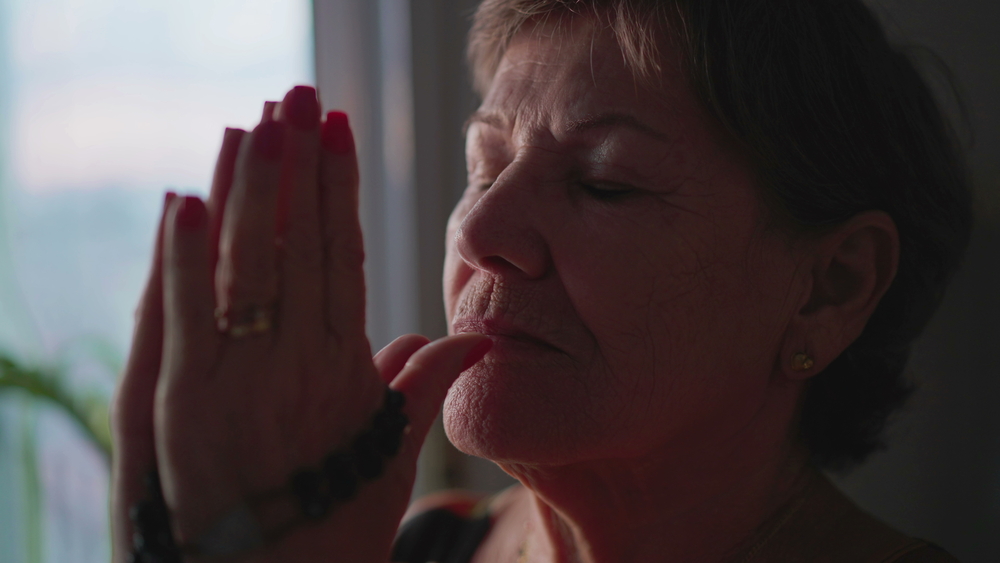Addiction, conventionally perceived as a damaging phenomenon, is under reconsideration in light of the concept of “positive addiction.” A recent study by Joyzy Pius Egunjobi investigates this concept in an unusual context: habitual prayer.
Egunjobi’s research explores the notion of ‘prayer addiction’ through the lens of William Glasser’s theory of “positive addiction.” This approach reframes our traditional understanding of addiction, considering potential beneficial facets when the subject of fixation is prayer. The results present a nuanced perspective, fostering a new discourse on addiction’s multifaceted impact on an individual’s life.
“The term’ positive addiction’ is credited to William Glasser, who claims that positive addictions strengthen us and make our lives more satisfying and enable us to be more confident, more creative, happier, and usually in much better health,” Egunjobi explains. “Positive addictions, unlike their negative cousins, alcoholism, and other drugs addiction, enhance life.”
 The term addiction often conjures up images of suffering, abuse, and degradation. “The addict,” as they are pejoratively called, seems always to worsen, failing to fulfill their social and personal responsibilities. Yet, our understanding of addiction has drastically shifted over the last few decades. This shift started with questions regarding the necessity for addicts to become abstinent. It then continued through the expansion of behavioral addictions, which eliminated the chemical aspect of addiction. Finally, it arrived at wondering whether some addictions could be a net positive for an individual.
The term addiction often conjures up images of suffering, abuse, and degradation. “The addict,” as they are pejoratively called, seems always to worsen, failing to fulfill their social and personal responsibilities. Yet, our understanding of addiction has drastically shifted over the last few decades. This shift started with questions regarding the necessity for addicts to become abstinent. It then continued through the expansion of behavioral addictions, which eliminated the chemical aspect of addiction. Finally, it arrived at wondering whether some addictions could be a net positive for an individual.
In this new article, Egunjobi first had to define “prayer addiction” operationally. This involved using the criteria already created for other behavioral addictions and drawing upon prior work on prayer addiction. These addictions often include an inability to resist engaging in the behavior, a sense of “loss of control” regarding the behavior, failed efforts to reduce or stop the behavior, and the behavior interfering with social and interpersonal activities and responsibilities.
Like all other addictions, defining and measuring prayer addiction involves assessing the frequency, impact, and experience of those who may (or may not) be suffering from it. The criteria for prayer addiction include negative consequences due to praying, such as guilt feelings or a bad conscience because one has not prayed, hurting or neglecting oneself or others because of praying, and having their prayer habit affect someone or something important.
Yet, these criteria are somewhat loose if you examine them. For instance, who defines whether or not the behavior hurts social and interpersonal activities? A person skipping family dinners to go to the casino may have a bigger problem than someone spending all their time honing a skill. Egunjobi uses the story of George Schuba from the book The Boys of Summer to illustrate this point. Schuba, a baseball player, was known for his “natural” swing, which resulted from years of practice.
Schuba practiced his swing so frequently and consistently that it resembled addiction (inability to stop, persistent and intrusive thoughts, feeling of loss of control), but this ultimately led to success. Egunjobi identifies this as a “positive addiction” using the six criteria outlined by William Glasser:
- It is something noncompetitive that you choose to do, and you can devote approximately an hour per day.
- You can do it easily, and it doesn’t take much mental effort to do it well.
- You can do it alone or rarely with others, but it does not depend upon others to do it.
- You believe it has some value (physical, mental, or spiritual) for you.
- You believe that if you persist at it, you will improve—but this is completely subjective—you need to be the only one who measures the improvement.
- The activity must have a quality that you can do without criticizing yourself. If you can’t accept yourself during this time, the activity will not be addicting (emphasis original).
Several studies have found that prayer can be beneficial. It reduces stress, decreases heart rate and blood pressure while praying regulates breathing, increases empathy, builds relationships with God, others, and self, and promotes emotional and spiritual health. But what happens if someone is addicted to prayer? Would it still be beneficial?
Egunjobi designed an instrument, the Prayer Attitude and Addiction Test (PAAT), to measure this possibility. It includes questions about demographics, prayer attitudes, and potential symptoms of prayer addiction. This survey was distributed to 203 Christians aged 20 and above through an online portal.
Of the 203 responses, only 179 were valid enough to be included in the measurements. 71.4% of respondents considered themselves “religious,” while 8.7% identified as spiritual, and the remainder some combination of spiritual/religious, with only 1% considering themselves neither spiritual nor religious. The study also found that 94% of the respondents prayed daily, and the overwhelming majority (86.5%) prayed at least five times weekly.
Regarding the prayer’s ability to stop, Egunjobi asked if they would cease praying if the phone rang, with 81.9% saying they would ignore it, silence the phone, and continue praying. However, if some were interrupted in person, 54.3% of the respondents stated they would cease praying and attend to the person who interrupted them.
In relation to losing control, the majority of participants (65.4%) reported at least one instance within the last six months where they couldn’t stop praying once they began. About half of these participants (46.9%) admitted that their commitment to prayer caused them to neglect certain responsibilities. Interestingly, despite 21.9% of participants noting concern from friends or relatives about their prayer habits, a significant proportion (46%) could not alter their approach to prayer.
Moreover, participants revealed experiencing adverse effects both from neglecting their prayer habits and indulging in them excessively. A substantial majority (83.7%) experienced guilt or a troubled conscience when they did not engage in prayer. About a third (33.2%) stated that their prayer habits had impacted various aspects of their lives, including work, meetings, or other essential duties. Similarly, 20.1% confessed that their prayer habits led to neglect or harm to themselves or others physically, emotionally, or spiritually.
Considering these findings, Egunjobi identified that roughly 13.4% of respondents met the criteria for prayer addiction. When examining whether prayer addiction could be regarded as positive, it was found that the adverse effects were comparable to those found in Alcohol and Other Drug (AOD) addictions and other behavioral addictions. Among those identified with prayer addiction, 20.1% neglected self-care activities such as eating or interacting with their family, and 33.2% reported neglecting familial or friendly relationships due to their compulsion to pray.
The study does have limitations, primarily that it focuses on Christianity and Christian prayer. The findings might differ for other Abrahamic traditions or other forms of religion and spirituality. Another issue is the definition of “positive.” There are debates around the efficacy of prayer and how positivity correlates to the core beliefs of the religion from which the prayer originates.
However, at a time when the overdose crisis is still escalating, debates around treatment models continue, and discussions about the nature of addiction abound, shifting the focus from negativity to positivity about addiction could stimulate further research into and understanding the phenomenon of addiction. Expanding the definition of addiction might help reduce stigma, increase awareness and understanding, and direct treatments and policies toward more success.
****
Egunjobi, Joyzy Pius. (2023). Prayer Addiction and William Glasser’s Positive Addiction. International Journal of Research and Innovation in Social Science. VII. 10.47772/IJRISS.2023.70532. (Link)















[Duplicate Comment]
Report comment
Different forms of meditation, imagery, or prayer, and everything we do can be performed with states of mind that are helpful or not. One is convinced of the value of prayer and their belief system, while the other scoffs. Prejudice and simplistic thinking against Christianity abound in the psychiatric wards and is a risk factor for iatrogenic harm. The actions of patients are frequently judged to be a symptom of illness, when they are not. Mental health professionals need to stop playing God.
I realize I am touchy about this subject. I am touchy about our expectations for patients when they are inhumanely treated in psychiatric wards and are coping the best they can with no-end-in-sight for hospital discharge or recovering their health. Time wasted and iatrogenic harm experienced in hospital robs you of connection with everything and everyone you need to survive. You could pray constantly to cope, or you could become psychotic to cope, or you could do both at the same time. While professionals see these patients as research opportunities, the patients and their families agonize over the injustice that continues day after day. It’s like fiddling while Rome burns. The staff plan their vacations, while the patients despair of ever having a normal life again because of the toxic meds and the traumatic battery of their autonomy and well-being.
Report comment
To me it is a protected set of beliefs and practices that are not to be medicalized since that could lead to religious persecution of the medical kind, or medically based. Which, to me, I am no lawyer nor giving advice, is what they used to call “a war crime”.
And some religious leaders and communities do call on constant prayer: when there is a catastrophe, or when another member of the community, even a “personality” is sick, injured or in distress. Is that going to be medicalized too?.
So if, in the future as this article might point to, I say “Oh Good Heavens” too often and fulfills these 6 criteria, will I be at risk of being labeled?.
Report comment
All those 6 criteria to me could fit any self-pleasuring activity, even the most common one, according to studies, particularly in teenage years. Even reading novels if that is not too difficult for me may fit the bill.
This summary to me brings to light that many if not all of the psychiatry/psychology diagnoses are moral values based. Which is not how biological/medical disease actually is based.
From a human rights perspective: How legal or reasonable would be for me to be diagnosed, without my knowledge and probably against my will, with ANYTHING without prior informed consent?. How more grievious would be if I actually opposed to be diagnosed based in toto or in part in my, PROTECTED, personal beliefs? Even if done compulsively, harmfull to my self AND to others?. Could that not be my right and give EVERYONE else an obligation to stay out of it?.
‘who defines whether or not the behavior hurts “social and interpersonal activities?’: I bet excercising my autonomy and demanding respect for MY thoughts, words and/or deeds, even if done respectfully is bound to have “negative consequences” in my interlocutors, on my community?. Shouldn’t any non criminal offense in that way be addresed by the civil legal processes?. Euphemistically: “Missa thinks he fellow prayeth too much, it’s unhealthy”. More euphemism: “It is becoming a non criminal, non civil, non familiar UNCIVILIZED offense to be dealt in a physician’s office”.
So, paraphrasing” “Who said such HURT is actually RELEVANT to the diagnostic process?”. Some sarcams: “After all the hurtining others protein, a pressumably 50 to 70 aminoacid long glycosilated molecule has not been identified in the brain of OTHERS, but we have a proxy for that: complaints”.
And in top of that, who has proven beyond any reasonable doubt that actually said thoughts, deeds and words are either not normal, nor a VARIANT of normality, even if they cause “positive effects” or harms. Not everything abnormal in a statistical sense “speaks” of a disease state nor of a “predisposition”. Regardless if for some individuals, even communities, that has some positive effect?
Where is the balance of stakes, interests, laws, regulations, historical knowledge, harms and benefits in the “medical balancing” of symptoms, signs and diagnoses?. Did the ethical board consulted the relevant believers representatives BEFORE approving such study?. Was the high curia asked about it?.
I vote compulsive MIA commenting for the DSM-VI or the DSM-VR.
This survey apparently includes some non religious and/or non spiritual Christ curious…
I especulate that kind of study was bound to cause at least discomfort in other more “personally involved” religions, where it actually could not have passed the ethics board…
How would that criteria diagnose the great mystics of the christian/catholic faith? Were Teresa de Avila, San Francis of Assisi, etc, addicted??!?!?!. Was Jesus in his forthy days pilgrimage to the desert suffering from addiction?!?!. I bet his mother was very worried about him.
And I remind myself that from antiquity to late modernity one of the fuels of pyramid building, mining, writing, composing, painting, agriculture and doing philosophy at least in ancient Greece (the famous symposium) was actually alcohol. But I bet all of that historical evidence just points to a brain, organic psychiatric disease in those past humans. And their current faithfull followers. But somehow, the artcile, trying to point in the same direction as this paragraph it can backfire? Like two wrongs to mend another?
Report comment
Addiction was originally the contract by which a (Roman) slave was legally contracted to a buyer. The slave’s addiction was a total ‘giving over’ of self to owner. In the middle ages some religious orders spoke by analogy of (voluntary) contracting to God, totally ‘giving over’ to religious demands including prayer but much more too. I suppose that any total commitment at root core value to a cause, belief, behaviour may be conceptualised as an ‘addiction’ though more usually, in a positive sense, one would talk of a vocation. Such ‘giving over’, of course may be positive or negative at psychological, ethical and political levels (though such judgments would be contingent upon the volorisers’ own core values, ideology etc.)
Report comment
So, correctly, we are all at least medievally and/or early modernly ethymologically, if devoted or comitted [up] to something, in fact addicted to it.
Even if I am ‘sold’ to truth! makes me an addict in the latin way of language!. Even alloted to MIA made me an addict of MIA in an antiquity kind of way!.
That is so enlightening, the previous comment is so insightfull, thanks!. My commitment, addiction to truth, at least regarding proper language has gone UP a little notch. Thanks again!
Talk about bringing classical education to bear fruit for millenia…
Report comment